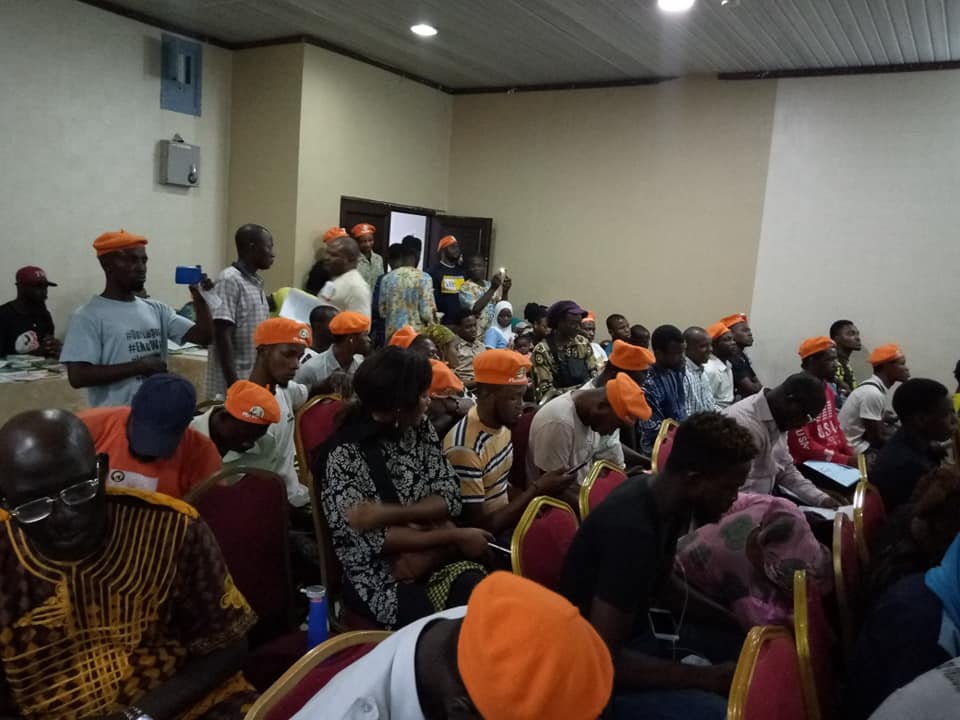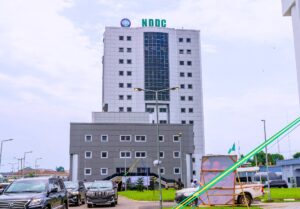Reviving Popular Action for Democracy and Freedom in Nigeria
In 2019, Social Action and its solidarity partners mobilised civic constituencies against the increasing assault on freedom of expression and democracy in Nigeria. Throughout the year, the country experienced shrinking of the civil spaces reminiscent of the dark days of military dictatorship. There was an escalation of state impunity and brazen disrespect for the rule of law in the country as exemplified by the detention of journalists, pro-democracy and anti-corruption activists in defiance of court orders. Thus, Social Action and its collaborators: the African Centre for Media and Information Literacy (AFRICMIL), Civil Society Legislative Advocacy Centre (CISLAC), and other partners, Civic Media Lab (CML), Coalition For Revolution (CORE), Nigeria Intervention Movement (NIM), The Difference Newspaper and Sahara Reporters, supported by Rosa Luxemburg Foundation, organised the second edition of the Nigeria Pro-Democracy Conference, which was convened as a platform for pro-democracy activists, social justice advocates and organic scholars in Nigeria to examine the democratic practices in Nigeria since 1999 and discuss options for positive civic engagement in politics; for promoting popular power and enthroning a representative and accountable government in Nigeria.
The well-attended conference which took place at the Osun Hall, Lagos Airport Hotel, Ikeja on December 17, 2019, had the Theme: Reviving Popular Action for Democracy and Freedom in Nigeria. The gathering witnessed presentations by various human rights activists, all of whom agreed that the country’s democracy was endangered and that there was an urgent need to revive pro-democracy movement with a view to stopping the encroaching dictatorship tendencies under President Muhammadu Buhari.

In his opening remarks, Arochukwu Ogbonna who represented the Executive Director of Social Action, Dr Isaac Osuoka, noted that the shrinking civic and political space has led to a general state of insecurity in Nigeria and worsening social and economic conditions for the majority of citizens. Delivering the welcome address, co-convener of the conference, author and activist, Dr Chido Onumah who spoke on behalf of the organising partners, noted that the conference was put together to get people to speak with one voice on the many challenges confronting progressive movement in Nigeria, in particular, and the existential threat that millions of compatriots face on daily basis. The conveners recalled that the inaugural pro-democracy conference of December 2018, at the National Press Centre, Abuja, in the lead up to the 2019 general election, provided space for democracy activists to examine the state of the pro-democracy movement since the 1990s. The inaugural conference brought together veterans of the pro-democracy movement and younger activists and served as a platform for inter-generational dialogue on the movement of democracy in Nigeria and the state of the nation.
The conveners stressed the imperative of civic intervention of the pan-Nigerian character reminiscent of the 1990s pro-democracy movement. They noted that more people are living in extreme poverty in Nigeria than anywhere else in the world while violent conflicts are escalating.
Other activists, including Richard Mammah, publisher of the Difference Newspaper; Angela Odah; Prof Anthony Kila; Habib Dolapo; Wale Okunniyi, among others, took turns to speak on the state of affairs of the country with all of them in agreement to the urgent need to stop the encroaching fascism under the present leadership. In her remarks, Mrs. Odah, representative of the Rosa Luxemburg Foundation, said the conference was necessary to enable the participants add voice to the call for a stop to the encircling militarism in a democratic dispensation. She pointed out that the government of the day was using siting of projects and lopsided appointments to divide the country along ethnic and religious lines while encroaching on the rights and liberties of the citizens.
Delivering his keynote address titled: The Anti-Politics of the Buhari Administration, Dr Odion Silvester Akhaine warned that the country was heading to the point of no return.
He noted that the current leadership of the country has inflamed divisive tendencies and called for concerted effort to build alliances to save the country from collapse. He said that the legislature is a rubber stamp one, known in British history as the ‘Long Parliament’, a proxy of the executive who act in brazen compromise of parliamentary autonomy. The judiciary is peopled by political appointees without merit but programmed and intimidated to do the will of the executive. The keynote address was followed by a panel discussion during which members of the panel further dissected the issues and took questions from the audience.

In a communique drafted at the end of the conference by Mr Obinna Ezugwu and read by Mr Otedola Adeola, the conference observed as follows:
- Nigeria is fast sliding into a fascist dictatorship.
- We are confronted with a government which has no regard for the rule of law.
- Court orders are being disobeyed with impunity. Journalists and activists are arrested and detained indiscriminately.
- Sahara Reporters publisher, Omowole Sowore, Olawale Bakare, former National Security Adviser, Sambo Dasuki, leader of the Islamic Movement in Nigeria (IMN), Ibrahim El-Zakzaky, among others, remain in detention despite court orders for their release. We also have journalists like Agba Jalingo and Jones Abiri who are facing terrorism charges for simply doing their jobs. These are all testimonies to the shrinking of media and civil space in the country.
- The government proposed social media bill and hate speech bill are aimed at curtailing the freedom of expression of Nigerians.
- Even though the country now houses the highest number of poor people in the world, there is a bill called finance bill passed by the National Assembly awaiting the president’s assent. The essence of the bill is to force everyone, including the mass of unemployed Nigerians to pay more taxes. According to the bill, if you have no Tax ID, you can’t have a bank account. The government has also increased VAT, introduced POS charges, all of which are aimed at further impoverishing Nigerians to make more money available for the elite to loot. The minimum wage has yet to be implemented.
- In addition to several billions of dollars that it has borrowed, the government is now seeking to borrow another $30 billion while the bulk of the 2019 budget is to be borrowed. This is an attempt to plunge Nigeria into a debt crisis and leave a heavy debt burden on the future generation.
- It has become obvious that the Buhari government has no solution to the country’s economic and social problems. The despotic approach it deploys is only a decoy to take people’s attention away from the real issues of its failure.
- Part of the challenge facing the pro-democracy movement is that unlike during the military regime when we had a vibrant civil society when it was us against the military, we are facing a different challenge today. Politicians have succeeded in dividing us along ethnic and religious lines.
RECOMMENDATIONS
- The current battle to reclaim Nigeria is complex. We need an alliance of forces that would lead to the formation of a radical pan-Nigerian organization, taking into consideration the nuances of the Nigerian situation.
- We must answer the question of the structure of the Nigerian state.
- We must all, as lovers of freedom and people who have the interest of the nation at heart, start organising to ensure that our democratic rights are protected.
- We must all begin to act, to organise in our different localities to stop the encroaching fascism. We must not rest until journalists, activists and other individuals jailed are released.
- No matter the differences we have, we must decide on a few things: accountability of those in power, regardless of who is in power. We must ensure that the right of minorities is protected and that our freedoms are guaranteed.
- We must revive and restructure pro-democracy organisations and use them to make our voices heard and sustain the tempo of our activism.
- The pro-democracy movement should stand in solidarity with student unions across the country in order to strengthen their activism. We should also stand strongly against the victimization of student union activists in our various universities.
Participants agreed that the pro-democracy conference should be held at least once every year as a rallying point for activists and citizen across the country to continue to uphold the tenets of democracy.

